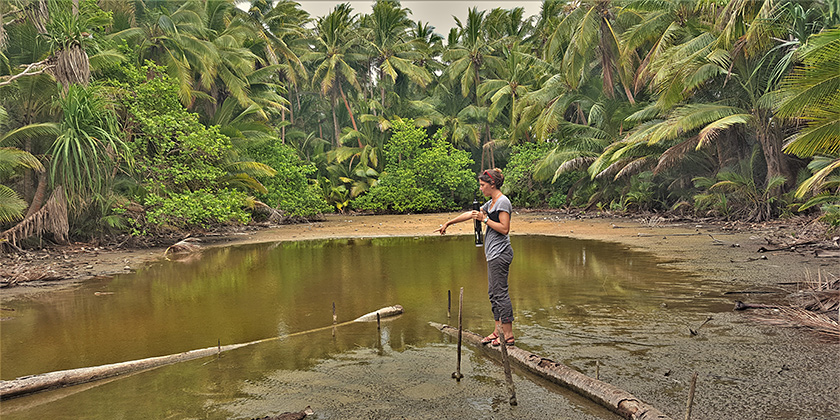Department Surface Waters - Research and Management
MACRO: Tracking the Polynesian migration

The MACRO project (Molecular traces of Anthropogenic and Climatic impact in Remote Oceania) investigates the timing and extent of human impacts on previously unoccupied islands of Remote Oceania. Lake and swamp sediment cores will be retrieved from several Islands across the Pacific Ocean (Vanuatu, New Zealand, French Polynesia). Multi-proxy analyses of the sediments will then provide combined paleoenvironmental and paleoclimatic reconstructions. The investigation will center on organic molecular fossils (lipid biomarkers).
The arrival of humans and subsequent evolution of population size will be documented by variations in coprostanol (faecal biomarker) and bile acid. New biomarkers will be developed to trace the introduction of cultivated plants. Past variations in rainfall intensity – the most prominent climate variable in this region – will be reconstructed from the hydrogen and carbon isotopic composition of aquatic and terrestrial plant lipids.
We will especially focus on the development of agriculture and the related environmental consequences triggered by land use change (e.g. soil loss, arrival of invasive species, changes in water quality).
